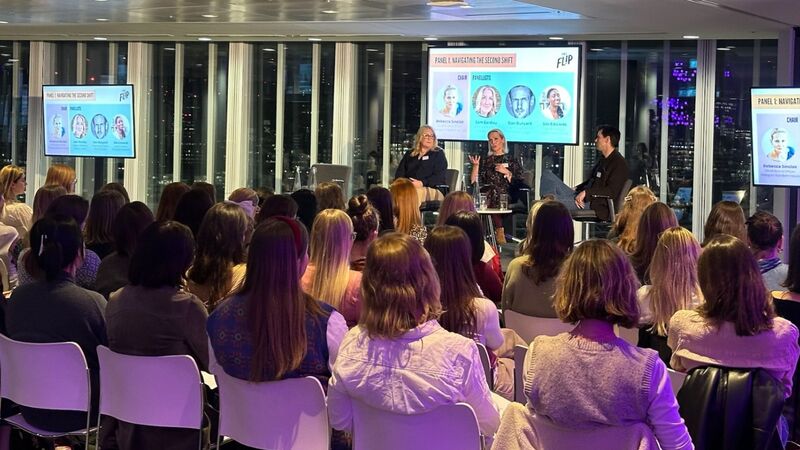You are viewing your 1 free article this month. Login to read more articles.
Access Denied: disabled employees and job seekers reveal their stories
An in-depth report into the publishing industry, and how accessible it is to those with disabilities, shows there is much work to do to make the book trade truly reflective of society
“The industry disables me.”
“It simply wasn’t designed for us.”
These quotes, taken from a study conducted earlier this year at the University of Derby and involving more than 200 people, epitomise the experiences of disabled job-seekers and employees in the UK publishing industry, many of whom describe feeling excluded, judged, misunderstood and unable to be fully open about their needs.
Entering the industry
To begin with, the study revealed clear barriers for disabled people entering the industry. Forty-five per cent of disabled job-seekers have not had positive experiences of job hunting in the industry in relation to their disability, and during the application process, 35% have experienced prejudice or discrimination. Alongside inaccessible application processes—including requirements to do timed tasks or proofreading, the use of online forms that can’t be adjusted, a lack of salary transparency and very tight deadlines—strict behavioural expectations in interviews were raised as a particular issue. This included having to hold eye-contact, not being able to “stim” (perform calming, repetitive, self-stimulating behaviour) and prioritising candidates that come across as passionate and outgoing.
Some 93.4% of job seekers said they were worried companies wouldn’t employ them due to their disability, and applicants therefore sometimes spend their energy “masking”—i.e. hiding their symptoms or traits—rather than concentrating on excelling at answering questions. Some participants also felt that interviews were dominated by discussions about their disability accommodation needs, rather than their skills for the job, which automatically puts them at a disadvantage. As one interviewee said: “You spend a lot of time reassuring people, and the problem with reassuring people is that you’re not putting your best foot forward and saying, ‘I’m the best candidate’, you’re just saying, ‘I’m capable of being here.’”
Support and career impact
Many disabled people felt unable to be open about their disability during job application processes or at work, mostly due to fears of discrimination. Some 66.2% of employees did not disclose their disability during the job application process before they were offered the job, and in their current role, only 37.9% said their company’s HR department was fully informed about their disability. Even when participants did disclose, many spoke of not getting accommodations; only 40.2% of respondents agreed that their workplace has made all the adjustments they need to manage their disability at work.
Disability was also often seen as a potential barrier for progressing in the industry; 64.7% of employees said that their disability had negatively impacted their career, and 79.3% said that they were worried their disability would hinder their future progression. Participants mentioned missing out on opportunities to further their career because events, networking opportunities and training were not accessible to them. One industry employee, who is profoundly Deaf, also spoke about missing out on the “white noise” in the industry due to the inaccessibility of industry communications in general, including the lack of captions and alt-text descriptions on social media posts.
Some 34.6% of employees said they had faced discrimination or prejudice related to their disability at work, with many noting issues with bullying, abuse and feeling punished for being unwell. One participant said they were “deeply traumatised” by the treatment they received, and others mentioned leaving their job because of it. There were also examples of employees being made to take holiday days for medical appointments, being made fun of by their managers, or being given less responsibility than their non-disabled colleagues without being consulted, due to assumptions that they wouldn’t be able to handle the same amount of work. Where positive experiences were mentioned, employees were often worried about applying for other jobs or promotions in case they might get less support elsewhere.
Workplace culture
In general, many participants mentioned feeling unwelcome in the industry. Books containing problematic representations of disabled people by non-disabled authors are still being published, and disability often isn’t included in the industry’s discussions about diversity. The nature of the jobs in the industry were also cited as an issue too; as one participant noted, “A lot of publishing roles are completely inaccessible to disabled people due to unreasonable workload, unpaid overtime expectations, networking and social expectations outside of the official job description.”
The London-centric nature of the UK publishing industry was also raised as a barrier for disabled people entering and staying in the industry; 84.4% of employees and 86.9% of job seekers agreed that the concentration of publishing in London makes it more difficult for disabled employees to work in the industry due the expense of living in the city, long and exhausting commutes, and the reluctance to move away from their support network at home.
Suggestions for improvements
Overall, there were calls to make sure basic accessibility needs were met, though this was seen as the bare minimum, with a bigger issue being negative attitudes towards disability. One respondent’s suggestion to their employer was to “treat me like a human being”. Disability-specific hiring schemes were seen as a way to increase the number of disabled people in the industry, but until attitudes change, they are unlikely to make a difference long-term. As one participant wrote: “People leave when they are tolerated, and not welcomed.”
Many participants felt that the problem is a lack of understanding about disabilities, and only 11.7% of employees felt their manager had received adequate training on how to support disabled people at work. There was therefore a call for compulsory disability training for every employee, especially for managers and those working in HR.
Finally, although there were calls for more regional offices and home working, the main suggestion to make the industry more accessible was an increase in flexible working, with 91.5% of employees agreeing that this would help them to manage their disability. Participants called for this flexibility to go further than flexi-time and a few days each week working from home. As one interviewee said, rather than just thinking about how workplaces can be accessible or letting people work remotely, “it’s more about realising that someone is not going to be at a functioning capacity every single day that they’re expected to be”. Workplaces that put their employees’ individual needs and wellbeing first will therefore make the industry a more accessible and welcoming place—not just for disabled people, but for everyone.
Cat Mitchell is a lecturer and the programme leader of the Creative Writing and Publishing degree at the University of Derby. Before working in academia, she worked for five years in the publishing industry. The full Access Denied report can be read here.















